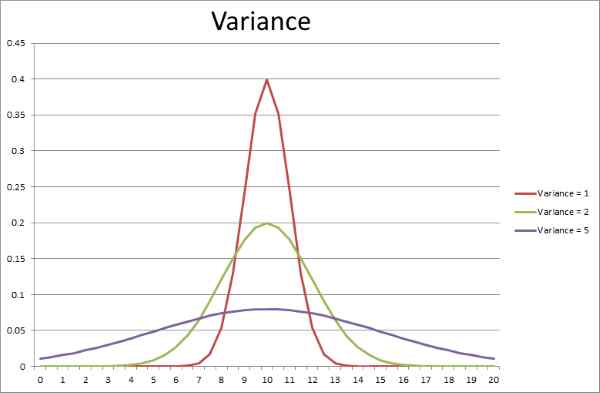Bet Few Numbers or Bet Many?

This is an interesting topic to think about if you like to spend time playing roulette. Is it better to put your chips on a few numbers or are you better off covering more of the wheel by betting on more numbers, or by using the Outside Bets like the even money bets, columns and dozens. Players like Christian Kaiser would probably say neither- bet on zones or thirds.
Variance and Volatility
What we are basically talking about here is bet variance, which is a measure of the frequency of success that you can expect with a particular betting set-up.
Try Some Low Variance Bets at UK Casino Club – £700 Bonus
An extreme example of a high variance bet would be a single number bet. If you had a bankroll of £100 for your session, and your favourite straight-up bet was the number 17, would you stick a £100 chip on the number 17? I think, most of us appreciate that this would be a very risky bet. Some players have managed it (Sean Connery famously pulled this off, but I doubt very much whether even he bet his entire pot on 17 on his first bet).

It’s called a high variance bet, because it’s volatile. You may not see the number come in that much, but when it does come in you can expect a bigger pay day. The probability of it coming in on a European wheel is (1/37) x100 or 2.7%. The Pay-out would be 35:1, plus you would get your initial bet back, so in the example above, if the number hit on the first spin, you’d get £3,600 back- quite a nice pay-out.
There is a system called the Makarov system where you target individual numbers and hope they hit before 35 spins (so you make a profit. The hotter the number the better! You can speed things up by playing on multiple wheels simultaneously- try Microgaming’s Multi-Wheel roulette. for example. Or play Double Ball roulette from Evolution- there are 2 balls spinning around the wheel on each spin.
At the other end of the scale, are the low variance bets. These are bets where you cover a high percentage of the table. An extreme example of this would be if you bet on 35 numbers, say £1 a number. If your number came in (highly likely), then you would win £35 plus you’d get your winning bet back- so you would be £1 up.
While this seems like a great way of eeking out a profit, I think you can probably see the problem with this system. You still have 2 numbers uncovered, so if you lose early on in a session you are going to wipe out all of your profit (and some). In the worst case scenario, one of the numbers you didn’t cover hits on the first spin and BANG!, you are dead and buried.
So What Are Best? High Variance or Low Variance Strategies
It’s unlikely that you are going to play either of these 2 extreme strategies if you are trying to beat the roulette wheel, but they are useful to consider because they represent the end cases of a range of betting set-ups. Like most things in life, there are countless variations of strategies that sit between these 2.
Low variance strategies will win more frequently, but you’ll need to pay for the privilege by covering more of the table. Most of the numbers you cover will not pay out- call them insurance if you like. In high variance strategies you try and pull together a nice run of wins before pulling out (eg with a Positive Progression System like the Reverse Fibonacci), or you try and cover your losses by increasing your bet after a loss (Negative Progression systems like the famous (or infamous) Martingale roulette system.
High Variance strategies will win less often, but the pay-out will be higher. In these systems, you will need to try and win early (that’s all down to luck) or you’ll need to try and cover your losses by increasing your bet after a loss. But as you’ll see a bigger percentage of losing games in a high variance strategy, this can be expensive. If your number hits though, you are quids in.
So, which is the best strategy?
Well ultimately, this will depend on you appetite for risk. If that is higher, you’ll probably tend to gravitate towards higher variance plays. It’s useful to step back and think about the mechanics of roulette at this point.
Forget variance and volatility for a second and just think about the closed system that is the roulette wheel, the players and the house. You cannot get rid of the house edge- that is built into the game. If we think about a day in the life of a roulette table, the croupier will see players come and players go. At the end of the day, some of those players will have won and they will have been funded by those players that lost. The house will probably have won too (it may have not, but the odds for them are more favourable, but remember they have to factor in the cost of the roulette wheel and pay for the croupier and the lighting!)
Your aim should be to be one of the players that quite while they were ahead. Don’t be the one funding the winners!
So, bet strongly and quit early on high variance systems, and bet methodically on low variance systems. We play both, depending on our appetite for the day. The Double Column system gives nice table coverage for example- as good a low variance system as any. And the Single Column can work in the high variance zone- as long as you’re not greedy.
Like anything in life, you’ll probably end up laying a “Medium Variance Strategy”, or at least a system that is somewhere in between the 2 end cases we described above. There have been some famous wins using systems that sit somewhere in the middle, such as Mike Ashley’s famous Complete Bet on the Number 17. Instead of just betting on the Number 17 which would have been as high variance as you can get, he also covered the numbers around the 17 as an insurance policy, or a way of decreasing the voltility of the bet with a higher table coverage.
The ironic thing was that the jammy b&*st@€d landed the number 17 anyway- not only did he get the 35-1 pay-out on the number 17, he also scooped a 17-1 pay out on his “insurance” Split Bets , plus all of the other surrounding cover bets. But do you know what he did then? Quit the table.
Plan your Bets and Bet Your Plan!
Fair spins to you!

